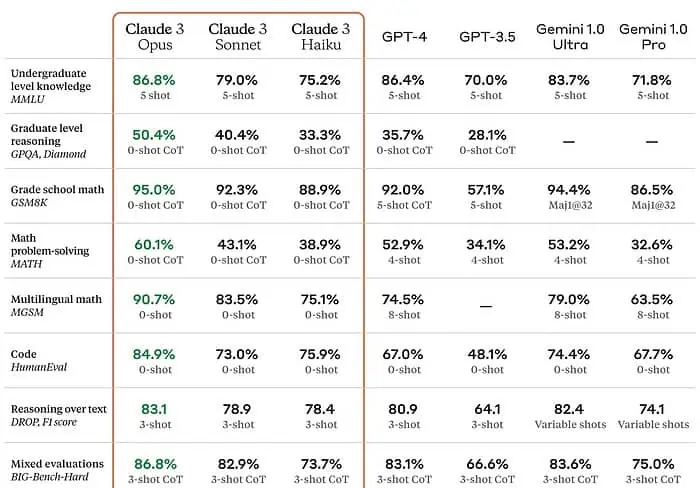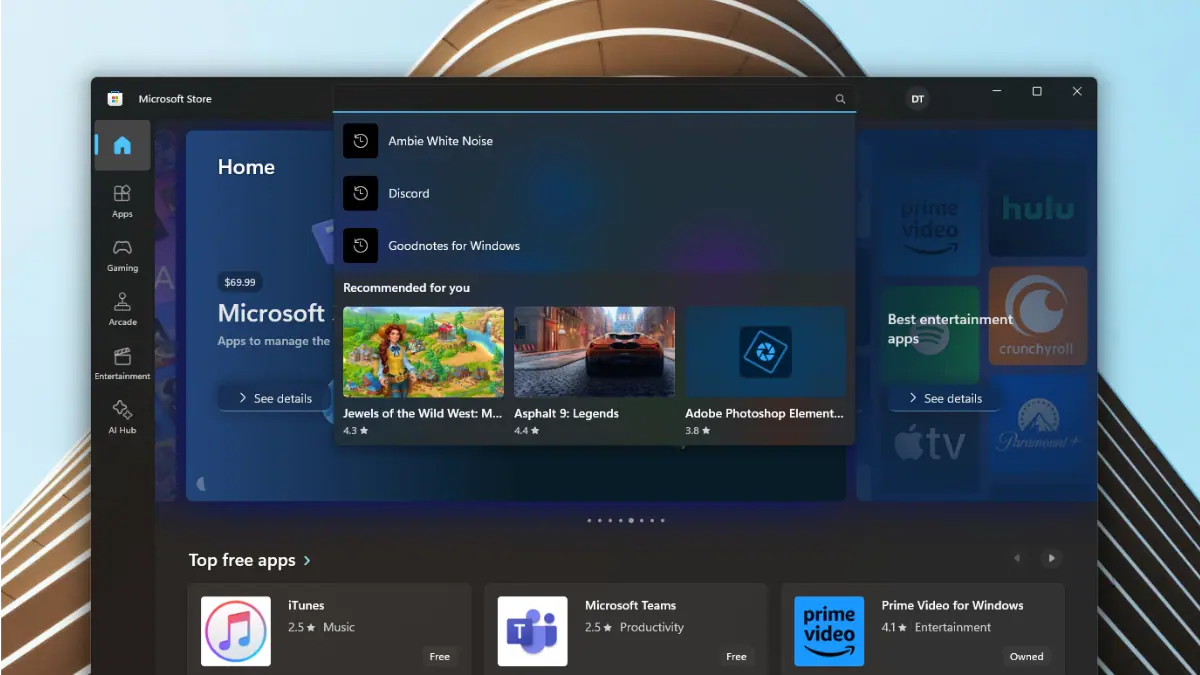Anthropic announces Claude 3 LLM model that can beat both OpenAI GPT-4 and Google Gemini 1.0 Ultra
2 min. read
Published on
Read our disclosure page to find out how can you help MSPoweruser sustain the editorial team Read more
Key notes
- Anthropic also mentioned that Opus, Sonnet, and Haiku are significantly less likely to refuse to answer prompts that border on the system’s guardrails than previous generations of models.

Anthropic, a leading AI startup, today announced its groundbreaking Claude 3 model family. This suite of large language models (LLMs) establishes new benchmarks across various cognitive tasks. The series consists of three models – Claude 3 Haiku, Claude 3 Sonnet, and Claude 3 Opus – providing a range of intelligence, speed, and cost options to suit diverse AI applications.
Redefining AI Capabilities
Claude 3 Opus, Anthropic’s flagship model, outclasses both OpenAI GPT-4 and Google Gemini 1.0 Ultra in undergraduate and graduate-level knowledge, mathematics, and complex task comprehension, demonstrating near-human levels of fluency. In addition, all Claude 3 models excel in analysis, forecasting, nuanced content creation, code generation, and multilingual conversations.
Performance and Affordability
Optimized for real-time interaction, the Claude 3 models are designed to enhance live customer chats, auto-completions, and data extraction. Claude 3 Haiku, the fastest and most cost-effective, processes an information-dense research paper with charts in under three seconds. Claude 3 Sonnet doubles the speed of previous models while raising the intelligence bar, making it ideal for knowledge retrieval and sales automation. Opus delivers similar speeds to Claude 2 and 2.1, but with much higher levels of intelligence.
The Claude 3 models also have vision capabilities on par with other leading models. Claude 3 Opus outclasses GPT-4V and even Gemini 1.0 Ultra in some categories.
Anthropic also mentioned that Opus, Sonnet, and Haiku are significantly less likely to refuse to answer prompts that border on the system’s guardrails than previous generations of models.
When it comes to context window size, the Claude 3 family of models will offer a 200K context window upon launch. However, all three models are capable of accepting inputs exceeding 1 million tokens. Anthropic may add support for larger context window in the future.
Availability and Use Cases
Opus and Sonnet are now integrated into Anthropic’s Claude.ai and Claude API, accessible in 159 countries, with Haiku launching soon. Sonnet is also available today through Amazon Bedrock and in private preview on Google Cloud’s Vertex AI Model Garden, with Opus and Haiku coming soon to both.








